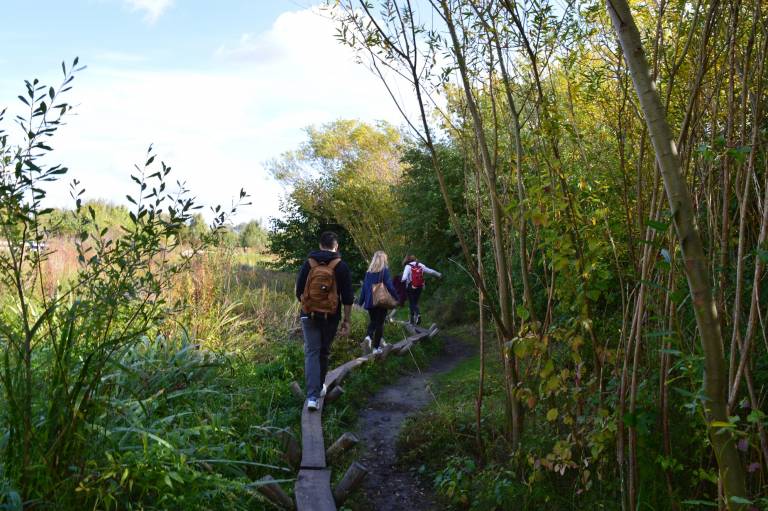Understanding the role of law in sustainable land use
A UCL module examining relationships between sustainability and environmental justice is helping students across disciplines to understand laws and policies relevant to sustainable and fair land use.

30 June 2022
Sustainable development requires issues such as environmental justice and nature conservation to be considered as part of strategic planning and decision making.
A Master’s course module – Land Use, Sustainability and Environmental Justice (LAWS0301) – developed and run by Professor Jane Holder (UCL Laws) is equipping a new generation of environmental experts with an understanding of the regulatory and policy framework that informs land use and development.
Without careful consideration, new infrastructure, such as flood defences and public transport hubs, can negatively impact some communities more than others and ecosystems may be disrupted. To inform sustainable development, the environmental justice movement aims to ensure people from all backgrounds, have a voice in the development and implementation of decisions concerning land use.
“Sustainable development and environmental justice are two vitally important environmental ‘movements’ which have developed rapidly over the past 20 years,” explains Professor Holder. “It’s now clear that achieving sustainable development relies on the participation of those affected by decisions about land use, as well as the creative use of law to advance environmental justice.”
Through a series of interactive seminars and debates held in Camley Street Natural Park, near UCL’s main campus in Bloomsbury, students consider the legal and policy dynamics of environmental regulation and critically assess the role that law and policy play in achieving sustainability and environmental justice.
““Sustainable development and environmental justice are two vitally important environmental ‘movements’ which have developed rapidly over the past 20 years.”
Students are encouraged to explore case studies and real-life examples that illustrate the interdependencies of sustainability and environmental justice considerations. Examples include exploring the ecological features and significance of conservation sites around the UK and considering the local implications of large infrastructure projects for air quality.
“A key aim of the course is to embed learning in our local environment,” explains Professor Holder. “One of the examples we focus on is understanding the sustainability and environmental justice issues relating to the development of the High Speed 2 rail link between London and the northwest of the UK, and its impact on the Somers Town residential area just north of UCL.
Students also produce a 3,000-word essay on a topic of their choice. These have ranged from the Heathrow Airport expansion from an eco-feminist perspective to managing conservation agreements in the Cairngorms.
“This study module attracts students from a range of Master’s courses who bring valuable perspectives to our discussions, “says Professor Holder. “For example, students from UCL’s MPlan in City Planning at the Bartlett School of Architecture and Planning bring insights and practical experience from planning and urban development, while LLM students often bring their experience of working in legal practice in diverse jurisdictions.”
The course encourages debate and is rooted in EU environmental law and policy, while drawing on examples from other jurisdictions, giving students the opportunity to critically analyse legal regimes from the perspectives of sustainability and environmental justice that will help them as they move into careers in law, planning and other professions.
 Close
Close


